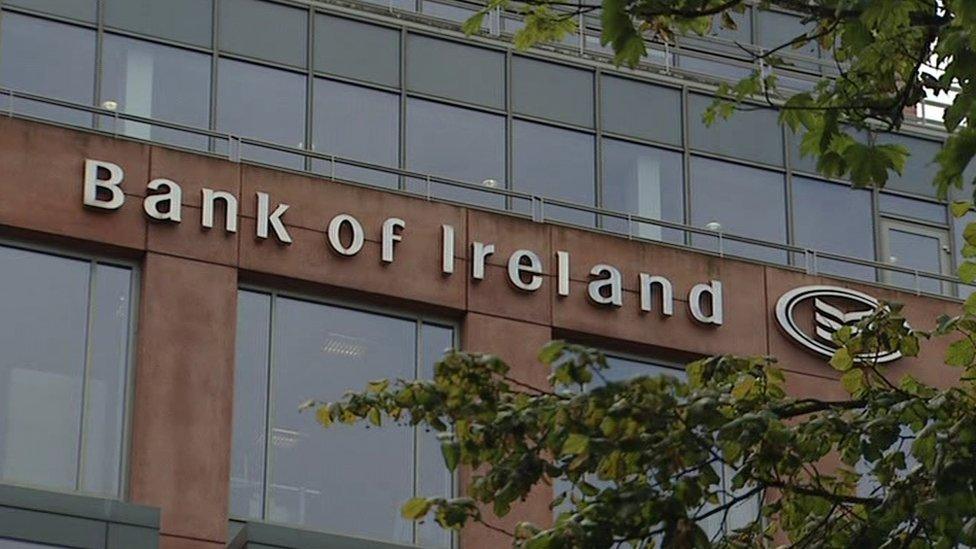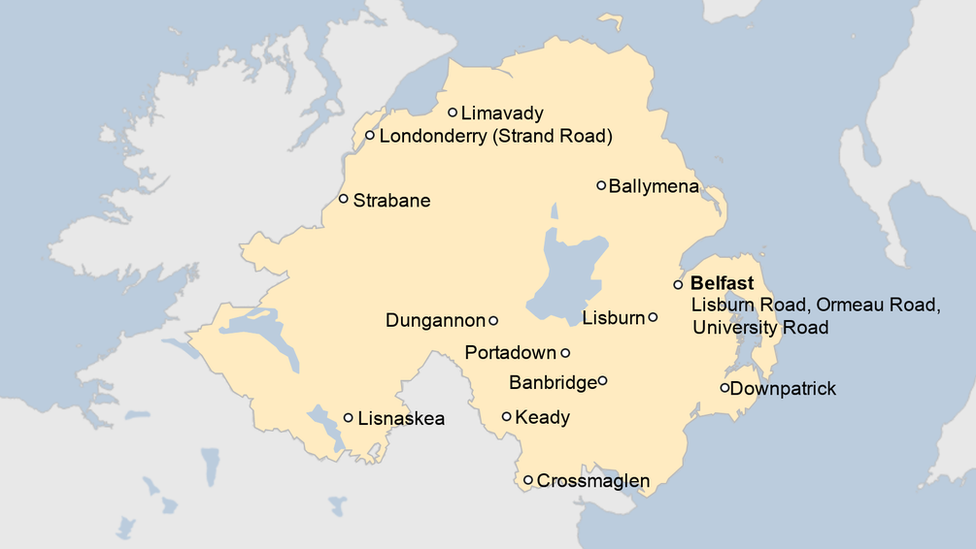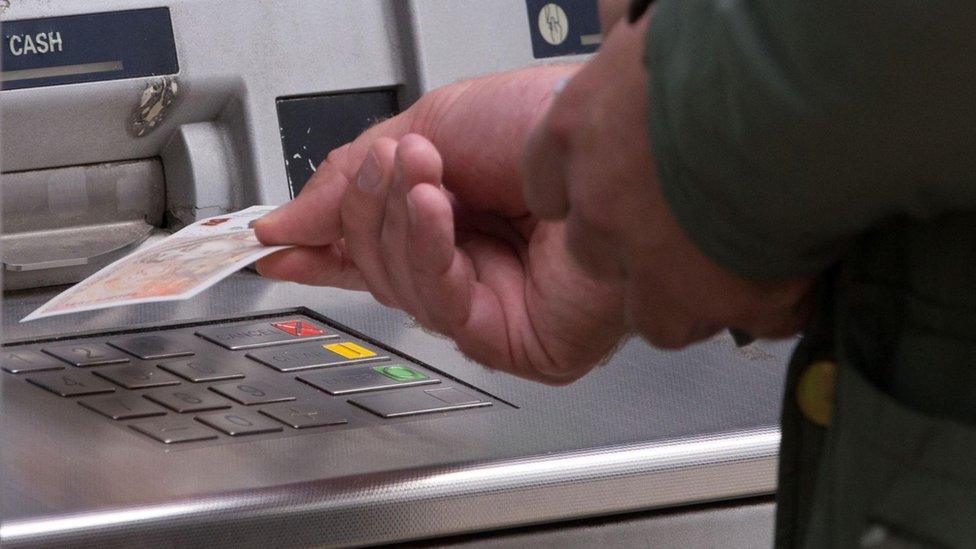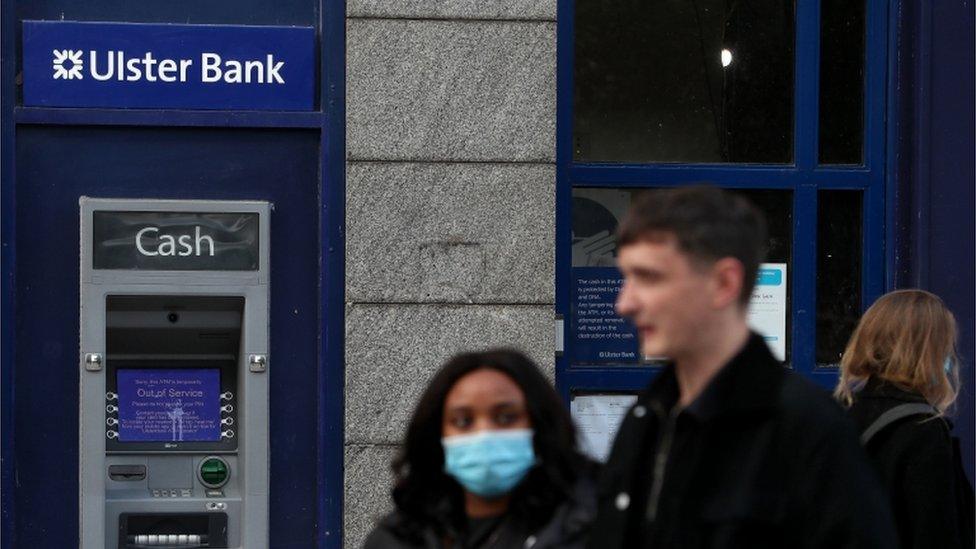Bank of Ireland to shut more than half NI branches
- Published
- comments

Bank of Ireland operates across the Republic of Ireland and the UK
Bank of Ireland has announced it will close 15 branches in Northern Ireland, which is more than half of its 28 branches currently operating in NI.
It is part of a wider cost-cutting exercise that includes the closure of 88 banks in the Republic of Ireland, where 169 banks will remain open.
The Dublin-based bank operates across the Republic and the UK. It is one of NI's "big four" banks.
The bank's UK head office will also relocate from London to Belfast.
The bank has been reviewing its Northern Ireland operations and there had been speculation that it could withdraw from the market.
That has not happened, but Chief Executive Francesca McDonagh said the Northern Ireland business will undergo "a material restructure".
'No compulsory redundancies'
The branch closures will affect the roles of about 120 staff in Northern Ireland but will not result in compulsory redundancies, according to Ian McLaughlin, Chief Executive of Bank of Ireland UK.

A geographical breakdown of Bank Of Ireland branches earmarked for closure in Northern Ireland
The branches earmarked for closure are:
Ballymena
Banbridge
Belfast (Lisburn Road)
Belfast (Ormeau Road)
Belfast (University Road)
Crossmaglen
Londonderry (Strand Road)
Downpatrick
Dungannon
Keady
Limavady
Lisburn
Lisnaskea
Portadown
Strabane
The bank would work to identify staff who could be redeployed to other roles within the company, as an alternative to redundancy, said Mr McLaughlin.
Branch closures will not start for 12 weeks and customers will be contacted individually about the changes, he told the BBC's Good Morning Ulster programme.
Pandemic impact
Aside from closing 15 branches, the restructuring of its Northern Ireland business will include simplifying its range of products with a greater focus on car finance and mortgages.
The bank will also continue with its strategy of withdrawing from less profitable lending across the UK.
It said this would mean its UK loan book shrinking by about 10% during 2021.

Bank of Ireland said its customers' usage of cash and branch services is falling substantially
The bank's UK division made a loss of £15m in 2020, compared to a profit of £152m in 2019.
The loss was due to impairment charges - money which must be set aside to cover loans which may not be repaid in full.
All banks have seen increased impairment charges due to the economic impact of the pandemic.
'Eye-watering numbers'
The bank as a whole showed an annual loss of €760m (£657m), again due to impairment charges.
"We've announced some rather eye-watering numbers this morning, like most banks," Mr McLaughlin told Good Morning Ulster.
"It's been a really tough time and anyone who tells you differently isn't really paying attention, but we've got a really solid business here," he insisted.
Mr McLaughlin added that the relocation of the bank's UK office to Belfast was "really good news and a sign of our commitment to Northern Ireland".
He said the branch closures were in response to changes in customer behaviour over the last four years.
He argued that as the popularity of digital services like online shopping had increased, banks could not be "insulated" from the switch to digital.
"Our customers are using our branches less and less and we've reached a bit of a tipping point," Mr McLaughlin said.
"Our cash usage and customer visits in the closing branches is down 70% since 2017 and commensurately our digital banking up 50% over the same period so we need to adapt and we need to change."
Retail NI Chief Executive Glyn Roberts said the number of closures "seems a step too far".
Acknowledging "the significant increase in online banking", Mr Roberts said Monday's news will have a "negative impact" on high streets across Northern Ireland when the lockdown ends.
"I have also particular concerns of the impact on rural communities, with further reduced ATM provision and the ability to access cash," he added.
The Consumer Council has said the closures risk isolating consumers by removing access to essential services.
Financial Services Director Scott Kennerley said many consumers and small businesses still rely on face-to-face banking.
"We know that some consumers in Northern Ireland still prefer to use cash so the decision by Bank of Ireland to close half of its branch network will have a negative impact on consumers and their access to cash services," he said.
"We will continue to engage with Bank of Ireland to understand how it is supporting consumers affected by this decision."
Bank of Ireland had already closed several branches over the last decade.
In 2011, it had 44 branches in Northern Ireland.
In August last year, the bank said it was aiming to cut 1,400 jobs from its UK and Ireland operations.
Last week, Ulster Bank confirmed it would close its Republic of Ireland business over the next few years.
Related topics
- Published19 February 2021

- Published5 August 2020
